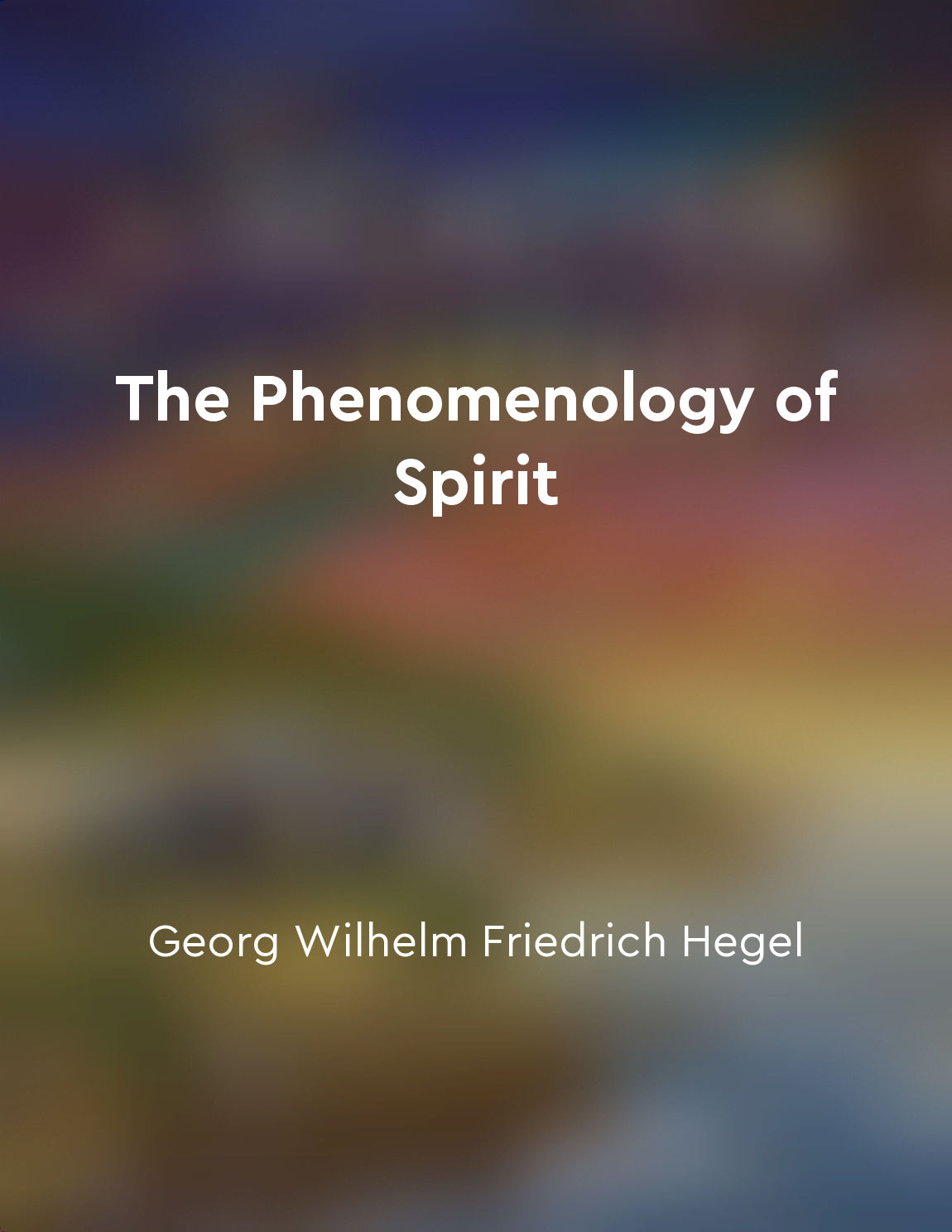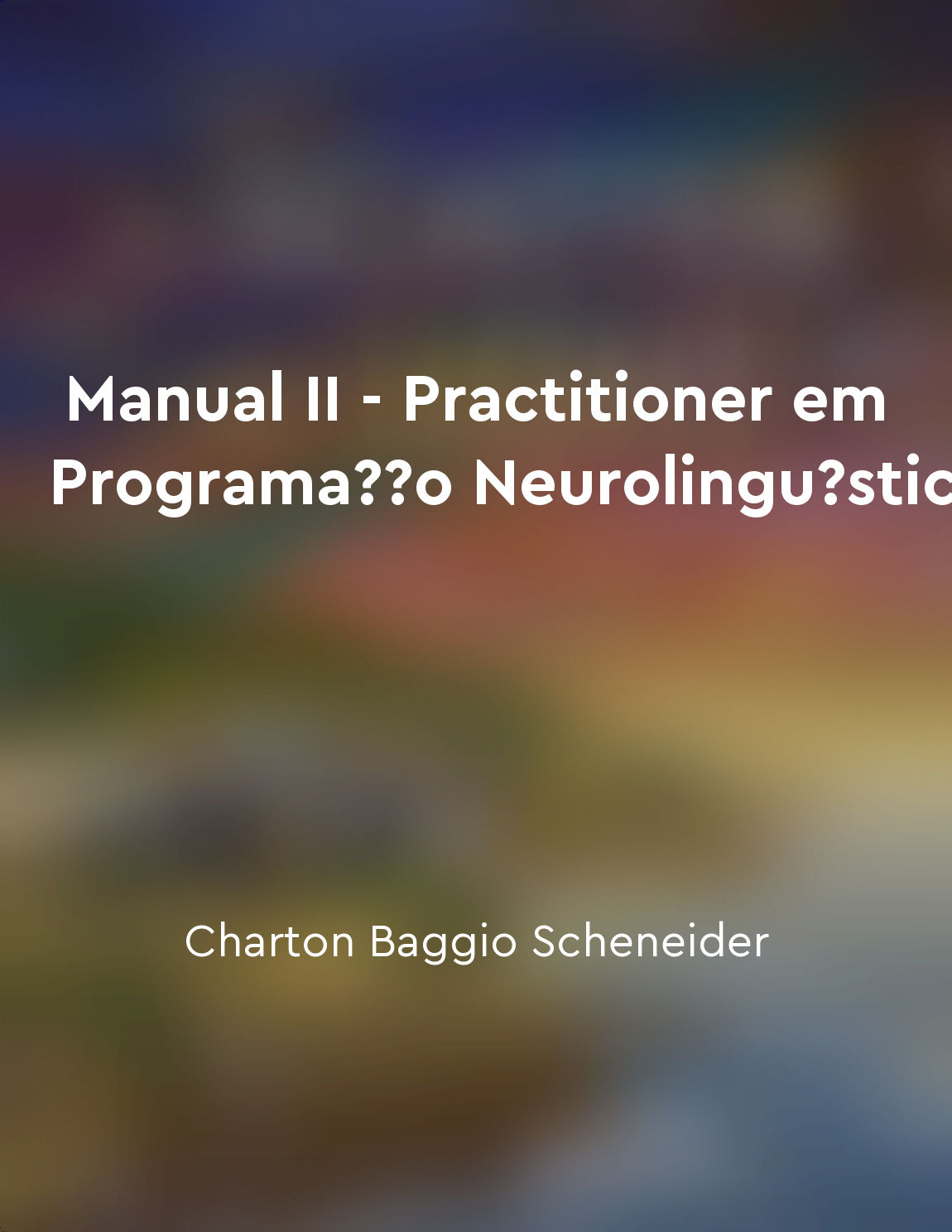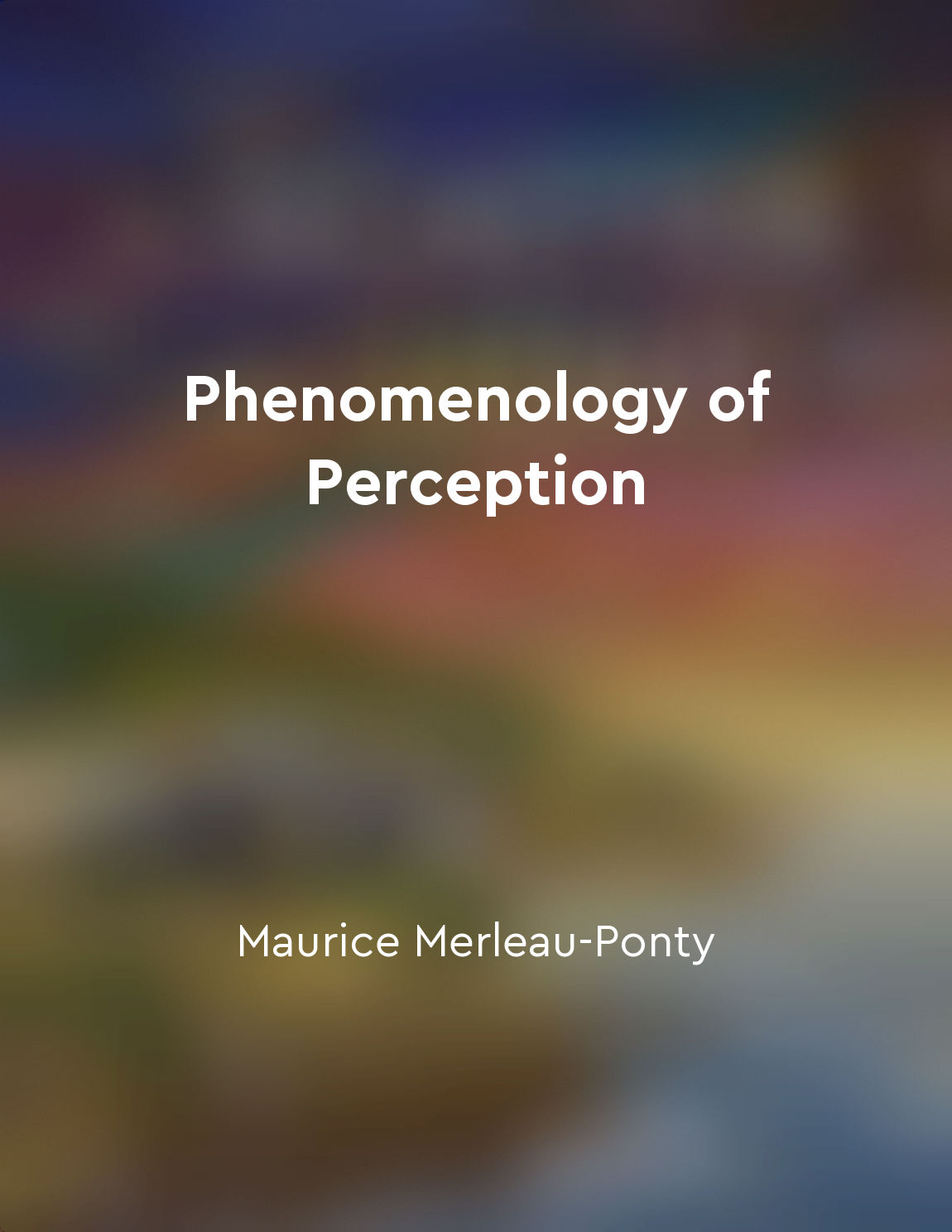Perception is a dynamic and ongoing process from "summary" of Phenomenology of Perception by Maurice Merleau-Ponty
Perception is not a static event that occurs in isolation; rather, it is a continuous and fluid process that unfolds over time. It is not a simple act of sensing the world around us, but a complex interplay of our senses, our body, and our environment. Our perception is shaped by our past experiences, our cultural background, and the context in which we find ourselves. It is a dynamic interaction between what is given to us in the present moment and what we bring to that moment from our past. Our perception is always in flux, constantly being influenced by new information and experiences. It is not a fixed and unchanging entity, but a living and evolving phenomenon. Each moment of perception builds upon the previous one, shaping our understanding of the world and ourselves. It is a process of interpretation and meaning-making, where we actively engage with our surroundings and make sense o...Similar Posts
Navigating the world without sight is a learned skill
The ability to navigate the world without sight is not an innate talent but a skill that must be learned through practice and e...

Historical progress
The movement of historical progress is the process through which human consciousness and self-awareness develop over time. It i...
Paralogisms reveal errors in applying categories to the self
The Paralogisms, as I have expounded upon, serve to uncover the fallacies that arise when one attempts to apply categories to t...
Authentic existence involves living in a way that is true to oneself and one's values
Sarah Bakewell delves into the essence of authenticity in living, emphasizing the importance of aligning one's actions with one...

Building confidence through NLP interventions
Building confidence through NLP interventions involves using various techniques and tools to help individuals overcome limiting...
Plato emphasized the existence of an ideal world of Forms
Plato believed that our world is merely a shadowy reflection of an ideal world of Forms. According to him, the physical world w...
There is no ghost in the machine
To hold the belief that mental processes are distinct from physical processes, as both Descartes and his followers have done, i...
Problem of Idealism
The Problem of Idealism arises from the difficulty of reconciling the existence of physical objects with the fact that they are...

